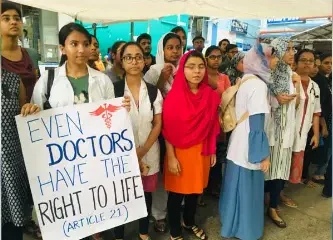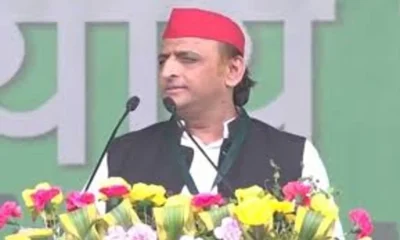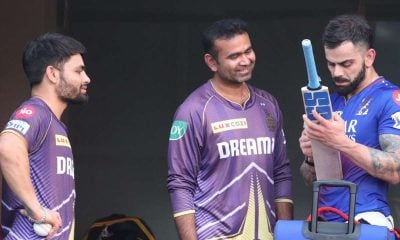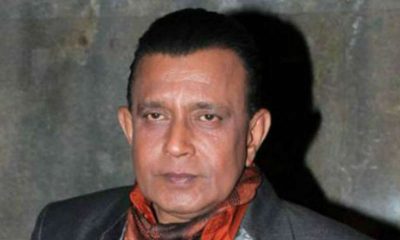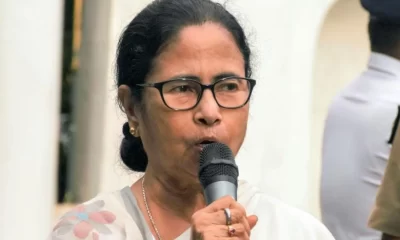~By Saeed Naqvi
These are such desperate times for journalism that S. Nihal Singh’s departure at 89, triggers memories about a phase in the profession that dreams are made of.
My personal journalistic trajectory trailed his rather closely. He was The Statesman’s Special Correspondent in Singapore when I entered the portals of that once great newspaper as a cub reporter.
I was, in fact, following Nihal’s footsteps because this was how he entered the profession a decade earlier – as a cub reporter. There were no schools of journalism then, but we received training of exactly the thoroughness which our respective letters of appointment had promised:
“We do not guarantee you employment at the end of the six month training period, but the training you will have received here will enable you to find work elsewhere.” It remained something of a puzzle why the pocket money Nihal was offered during the training period was infinitely higher than mine which was a meagre Rs.300 per month.
Like most of us who entered the profession after him, Nihal covered New Delhi courts, Tis Hazari courts, Municipal Corporation, Delhi State Assembly, Police Commissioner, Chief Minister. The drill of dwelling on nodal points of governance and power, moving upwards in measured step, imparted to the journalist that most precious of attitudes: an indifference to power, an ability not to be overawed.

As the profession expanded behavioural contrasts magnified. Untrained entrants at senior levels, who had romanticized political power from a distance, became unsteady on their feet because they found corridors of power too heady. A sense of balance was a frequent casualty.
This is where Nihal could not go wrong. In 1982, when the nation was convulsed by the Meenakshipuram conversions, Nihal, then Editor-in-Chief of the Indian Express, sent a teleprinter message to me in Madras where I was then posted as editor of five southern editions: “urgently need 700 words on Meenakshipuram.”
I put on my ultra-balanced hat and churned out the required wordage. It was a typical “while on the one hand” but “on the other” piece. Muslims shouldn’t be upto these tricks and Hindus shouldn’t get too excited. I mentioned “structural violence” in the Hindu social order: this was sacriledge and Nihal let it pass. Unaware of the gathering storm, he thanked me for having responded promptly.
What followed took him and me by surprise. We were both completely out of touch with the strength of feelings on the issue. Indeed, a certain indifference to religion which a whole generation cultivated as Nehruvian secularism was being jettisoned and we found ourselves flat footed.
After a brilliant career with the IAS and having established himself as a scholar of the Indus Valley script, Iravatham Mahadevan, had taken up a job as Executive Manager of the Indian Express’s southern editions. After reading my edit, he came charging to my room in a state of high agitation. “How could you have done it?” He looked at me in a daze, blabbering like someone in a motor accident. “How could you have done it?” I learnt later he was from the RSS, shakhas et al. I commend to the RSS to keep more Mahadevans in its stable. He was exceptionally erudite on subjects of his choice.
In the Express compound, in Hick’s bungalow, Ramnath Goenka was bringing the ceiling down: “Hindu Kahan Javey?” (Where should the Hindus go?) “Tum to Makkay chale jaao; Hindu kahan javey?” (You can go to Mecca, but where should the Hindu go?)
He commandeered his chartered accountant, S. Gurumurthy, senior RSS functionary, to write a rejoinder to my editorial. My “balanced” approach to Meenakshipuram, it transpired, was misplaced.
It was now Nihal’s turn to face the music. The piece, authored by Gurumurthy, arrived at his desk in New Delhi. His job as Editor was on the line. What should he do? But Nihal did what he had learnt in The Statesman. In a newspaper, the prerogative for taking editorial decision rests with the editor. He consigned the article to the waste paper basket. Ramnath Goenka too was a larger than life publisher. He allowed his Editor’s line to prevail. But separation was clearly on the cards; they belonged to different cultures.
So did S. Mulgaonkar “apparently” belong to another culture but he was both, a craftier man and a finer writer. In the projection of his image, Mulgaonkar was exactly Nihal’s opposite. Never having been to school, Mulgaonkar cultivated all the airs of English aristocracy. He was adept at bridge, horse racing, angling, and, believe it or not, keeping Oxford and Cambridge cricket scores. He was a gourmet cook, a fad for which he cultivated junior French diplomats as sources for herbs and white wine. All of this impressed the Marwari in RNG. Once an editor, devoted to the amber stuff, looked at his watch and dropped an obvious hint: “I suppose I will not get a drink here.” Pat came the reply from RNG “I keep, but only for English people.”
Nihal had no aristocratic pretenses of a Mulgaonkar. He was content with his buffalo undercut, marinated in garlic and pepper, roast potatoes and Dujon mustard on the side. He called it beef fillet. The Dujon, rather than English mustard was in deference to his warm hearted Dutch wife, Ge. He had first come to know her when she was a young KLM hostess. I remember him flaunt his European affiliation before friends in London: “I prefer the continent”, he would say with a sort of flat, ineffective pomp.
His understanding of politics and International affairs was uncomplicated. He made up in clarity what he lacked in deep insight. He was, by habit, a perfect gentleman.
It was a mistake, I believe, for both Pran Chopra and Nihal Singh to be parked respectively in Kolkata as editors of The Statesman. The only Punjabi that Bengal has ever tolerated was K.L. Sehgal in New Theatre cinema. This elicited no more than a smile from Nihal.


 India News15 hours ago
India News15 hours ago
 Latest world news15 hours ago
Latest world news15 hours ago
 Latest world news1 hour ago
Latest world news1 hour ago
 Latest world news1 hour ago
Latest world news1 hour ago
 India News49 mins ago
India News49 mins ago
 Latest world news35 mins ago
Latest world news35 mins ago
 India News21 mins ago
India News21 mins ago

